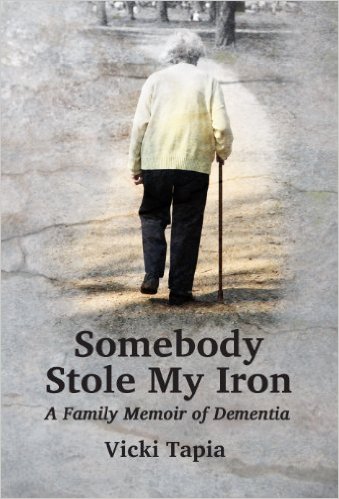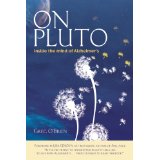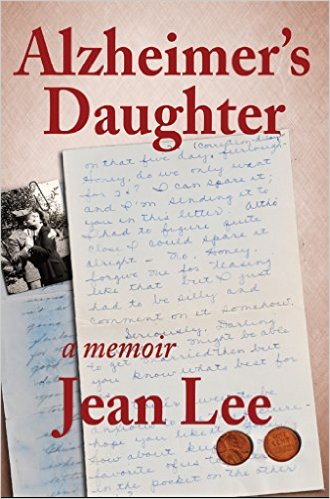Posts Tagged ‘Greg O’Brien’
Creating Personal Stories from the Care Partner’s Journey
My mother’s Alzheimer’s drove me to write. My writing inspired me to speak.
Over the last years, I have received enormous pleasure from connecting with people all over the world, sharing the stories from Love in the Land of Dementia: Finding Hope in the Caregiver’s Journey.
It All Started with Grief
When I initially realized the depth of my mother’s memory loss, I was shattered with grief.
My initial reaction was:
Visit with mom.
Drive home, wiping tears from my cheeks.
Stumble into the house, walk into a chair or table, and misplace my car keys.
Sit at the dining room table and stare numbly into space.
One day, during the “staring numbly” phase, my partner Ron said, “Are you writing down your feelings?” It was a smart and sensible thing to say; the sort of suggestions I might make to him in a crisis. I was, after all, a writer.
“I don’t feel like writing,” I said.
But his words stayed with me. The next day, I slightly altered my behavior.
Visit with mom.
Drive home, wiping tears from my cheeks
Stumble into the house, walk into a chair or table, and misplace my car keys
Sit at the dining room table and write numbly for 20 minutes
Pouring my Emotions Out and Inviting Understanding In
I poured out my fears, anger and grief. After doing this for a week,
I began noticing how interesting my visits with Mom were; we were explorers on a wild inner trek.
I started documenting our time together, sometimes even taking notes during my visits. I wrote about the challenges, humor and blessings. I wrote about my conversations with my father, with friends and family and with the aides, the nurses, the social workers. As I wrote, I saw there was much hope, promise and energy in my new world.
As I shared my work with friends and family, I realized I was chronicling my mom’s last years and capturing part of our family history.
Putting Your Life on the Page
How do you take a challenging part of your life and bring it to the page? Here are a few simple tips:
Pour Out Your Feelings
Give yourself time to feel your emotions, whether it’s through writing, art, music or other. Writing down your feelings helps you understand the depth of what you’re going through. For me, writing helped change my fear into curiosity.
Notice the Details
Write down the particulars, noting simple concrete facts. You are a researcher collecting data.
Uncover the True Story
Look for the universal meaning in your specific experience. How have you changed? How will the reader change through reading your words?
Ask for Feedback
Read the story aloud to someone and see how it sounds. What’s working and what’s missing? Ask colleagues for a professional critique. Think over their advice and decide what is right for you.
I was lucky enough to read some of my stories to my mother and father and receive their blessing for my work. Anytime I featured people in a story, I shared it with them to make sure they were comfortable with the material. When they’re comfortable, it’s time to share with friends and a wider audience, if you wish.
Here are some writings from other people on this journey.
 Vicki Tapia’s memoir, Somebody Stole My Iron, details the daily challenges, turbulent emotions, and the many painful decisions involved in caring for her parents. Laced with humor and pathos, reviewers describe the book as “brave,” “honest,” “raw,” “unvarnished,” as well as a “must-read for every Alzheimer’s/dementia patient’s family.” She wrote this story to offer hope to others whose lives have been intimately affected by this disease, to reassure them that they’re not alone.
Vicki Tapia’s memoir, Somebody Stole My Iron, details the daily challenges, turbulent emotions, and the many painful decisions involved in caring for her parents. Laced with humor and pathos, reviewers describe the book as “brave,” “honest,” “raw,” “unvarnished,” as well as a “must-read for every Alzheimer’s/dementia patient’s family.” She wrote this story to offer hope to others whose lives have been intimately affected by this disease, to reassure them that they’re not alone.
 Greg O’Brien’s story isn’t about losing someone else to Alzheimer’s, it is about losing himself. Acting on long-term memory and skill, coupled with well-developed journalistic grit, O’Brien decided to tackle the disease and his imminent decline by writing frankly about the journey. “On Pluto is a book about living with Alzheimer’s, not dying with it.” On Pluto: Inside the Mind of Alzheimer’s by Greg O’Brien
Greg O’Brien’s story isn’t about losing someone else to Alzheimer’s, it is about losing himself. Acting on long-term memory and skill, coupled with well-developed journalistic grit, O’Brien decided to tackle the disease and his imminent decline by writing frankly about the journey. “On Pluto is a book about living with Alzheimer’s, not dying with it.” On Pluto: Inside the Mind of Alzheimer’s by Greg O’Brien
Jean Lee’s memoir details her journey caring for both parents who were diagnosed on the same day. It is a WWII love story held together by faith and family. Alzheimer’s Daughter by Jean Lee 
 Marianne Scuicco describes herself as a writer who happens to be a nurse. She writes this work of fiction based upon her care for the elderly. It’s a tenderly told love story about Jack and Sara, owners of a New England bed and breakfast. Sara develops Alzheimer’s and Jack becomes her caregiver. Blue Hydrangeas by Marianne Sciucco
Marianne Scuicco describes herself as a writer who happens to be a nurse. She writes this work of fiction based upon her care for the elderly. It’s a tenderly told love story about Jack and Sara, owners of a New England bed and breakfast. Sara develops Alzheimer’s and Jack becomes her caregiver. Blue Hydrangeas by Marianne Sciucco
Shannon Wiersbitzky writes this work of fiction through the eyes of a young girl, not surprising perhaps, as her author bio notes that her own grandfather had Alzheimer’s. In the story, when thirteen-year-old Delia Burns realizes that her elderly neighbor is beginning to forget, she involves the entire town in saving his memories. What Flowers Remember by Shannon Wiersbitzky
Deborah Shouse is the author of Love in the Land of Dementia: Finding Hope in the Caregiver’s Journey.
